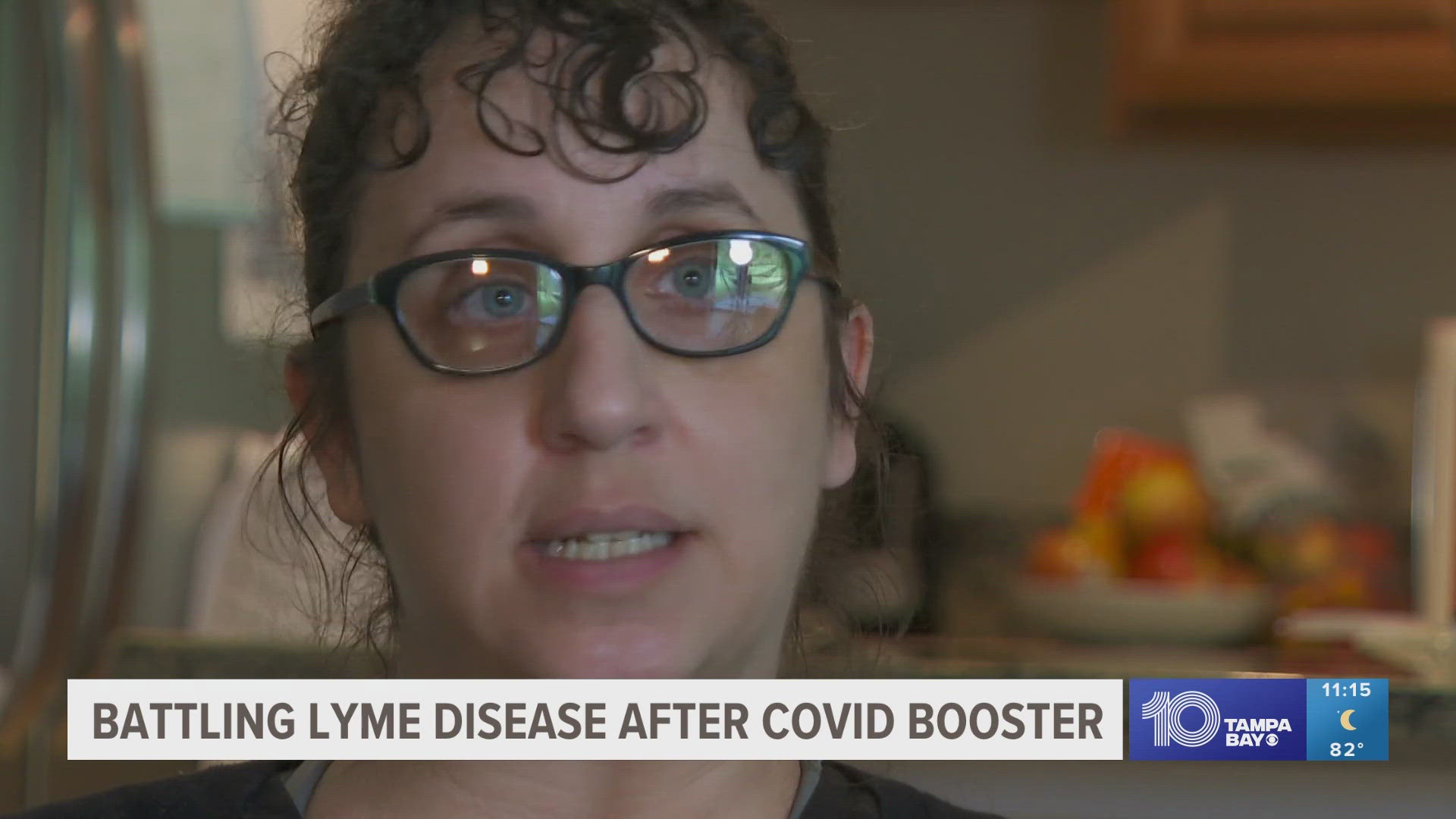10News is "Tackling Concussions"; watch part 1: A proud dad watches his son play football, even after concussions led to Parkinson's
ORLANDO, Fla. -- The brain is a complex organ. It controls just about everything in the body and when it’s injured, like with a concussion, there can be -- and often are -- negative side effects.
Let's run through the list: Headaches, nausea, dizziness and memory problems are all symptoms of concussions.
With time and ample rest, the brain might be able to heal on its own, but ways to assist in the recovery process are changing. The old practice of isolation and limiting stimulation is out. Doctors now recommend more rest, avoiding athletic activity and getting back to normal activities like walking the dog and doing household chores.
According to the Centers for Disease Control and Prevention, concussion symptoms can last a few days to a couple months, but in more severe cases, they can last even longer.
After concussions, 'you feel terrible but look fine'
"I wasn’t able to sleep. I had memory issues, I had headaches," said Bill Dorton, a personal trainer who suffered multiple concussions playing football through middle and high school. "It’s tough because you feel terrible but you look fine."
To no avail, Dorton tried acupuncture, hyperbaric chambers and visiting multiple neurologists to alleviate the symptoms, "They all just want to prescribe pills to me. And I wasn’t somebody that was going to mask a symptom, I want to actually get treated."
That lead Dorton to the Plasticity Brain Centers, in Orlando, Florida.
"Neuroplasticity is a concept in neurology where the brain can adapt,” said Dr. Matthew Antonucci, a chiropractic neurologist and co-founder and president of Plasticity Brain Centers, where staff uses this concept to help treat patients suffering from symptoms commonly caused by concussions. "We use some cutting-edge technology to try to isolate and identify what areas of the nervous system are functioning well and where things are not functioning so well.
"And it’s where things are not functioning well where a lot of neurological conditions occur."
Once those areas are identified, the team at the Plasticity Brain Centers develops a rehab plan to stimulate the area of the brain that isn’t working the way it should be.
"What we try to do is use all of our tools in our figurative toolbox: chiropractic, physical therapy, speech, occupational therapy, vestibular rehab," Antonucci said. "All of these different types of rehabilitation tools to create a customized planned to get someone functioning at their highest level possible."
Which is what Dorton said he found after going through treatment.
"The pain's gone, the nausea is gone, my memory is coming back a little bit," Dorton said. "I still have about an hour of work I do at home every day to help maintain and get me to that step of just maintenance."
Inspiration after injury
Dorton’s own experience with his treatment inspired him to start the Head Injury Treatment Corp, or H.I.T. Corp., a nonprofit organization that aims to improve the life of those suffering from post-concussion syndrome. Through fundraising, H.I.T. is hoping to send people to facilities like the Plasticity Brain Centers, which are dedicated to head trauma and brain injury recovery.
"There are a lot of people out there that are suffering just like I was that unfortunately don’t have the financial backing to do it," Dorton said. "There is a lot of people that don’t know (the brain center) is here, that there are doctors out there that care about treating the injury instead of just masking symptoms."
H.I.T. Corp. also focuses on spreading the world about post-concussion syndrome and providing a voice to people suffering from the condition.
Professional water skier Neilly Ross also turned to the Plasticity Brain Center for help recovering from her concussion.
Ross suffered from Postural Orthostatic Tachycardia Syndrome, also referred to as POTS. The syndrome affects the circulatory system and is increasingly recognized as a complication that could affect those recovering from a concussion.
"Sitting down, standing up or getting my heart rate up in anyway -- I would just pass out," explained Ross, who said she started to notice a difference in the severity of her symptoms after a month of treatment. "I could actually walk up the stairs or I could walk outside without passing out."
While the treatment worked for Dorton and Nelly, it doesn’t work for everyone.
“Our program is a five-day program. If I tell you to come in here and you’re going to be cured in five days you’re going to look at me like I’m crazy, and rightfully so, you should," Antonucci said. “We feel like we fit into a care continuum. We love working with patients that have exhausted all options and just say, 'Here I am, no expectations, what can you do to help me?'"
For people it does help, like Dorton, it can be life-changing.
"My quality of life has gone from like a two to a solid 10, and it’s almost hard to get used to," Dorton said.
►Make it easy to keep up-to-date with more stories like this. Download the 10 News app now.
Have a news tip? Email tips@wtsp.com, visit our Facebook page or Twitter feed.



